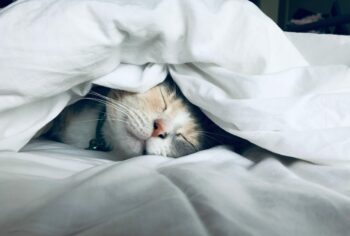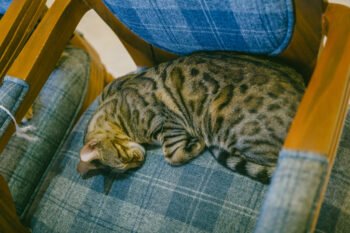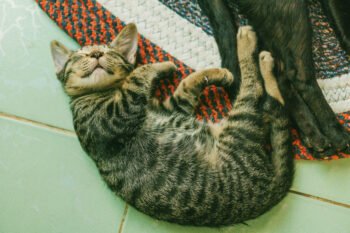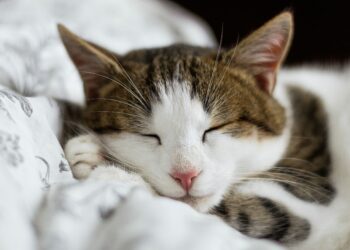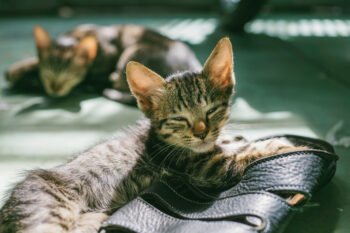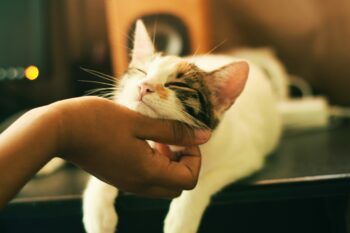After a recent ice storm, my husband and I came home to find all our door locks were frozen, so we quietly broke into our house through an unlocked window. Our nine-year-old cat, Sapphire, was petrified. When we turned the lights on, he was still frightened. Not until we said something did he realize who we were. Why didn’t Sapphire recognize us on sight?
Without a doubt, cats are creatures of habit. When we came in through a window — instead of the usual method of the front door — Sapphire was understandably startled. But upon seeing us, he didn’t recognize his own caretakers! Although cats are much more “purrceptive” than humans, sight isn’t their keenest sense. While most people only see the world around them, cats literally sense their surroundings — relying on their other keen senses to identify other animals, humans, objects and, of course, their owners.
- Sight
It’s a myth that cats can see in complete darkness. Because of a part of kitty’s retina called the tapetum lucidum — which acts like a reflector in the eye and bounces light to the back of the retina — cats can see quite well in extremely low light. But this ability comes at the expense of daytime vision. In fact, cats are relatively shortsighted in daylight and see things somewhat blurry; however, they can detect the slightest movement. Felines have incredible depth perception, enabling them to judge distances much better than humans. Still, overall, the sight sense is near the bottom of kitty’s cognitive abilities.
- Smell
A cat’s sense of smell is superior! Cats actually have a second system for smelling called the Jacobson’s organ — found on the roof of their mouth, letting them analyze air inhaled through their mouth rather than their nose. This gives them additional information concerning their surroundings and the people around them. Smells not only divulge where something is, they also play an important part in determining how cats distinguish territory. Cats mark objects — either by urine-spraying (which is normally preventable if the cat is neutered) or secreting scents from glands from their cheeks and paws — as a way of leaving their scent behind to show “ownership.” That’s why they rub around your legs and all the furniture in the house. It’s a territorial claim!
- Sound
Of all the senses, a cat’s hearing is its sharpest. Felines can perceive the slightest noise and accurately judge where it’s coming from. They can hear sounds three times higher than humans can. The ears are fairly large, relative to a cat’s head, and can rotate so sounds are captured more accurately. Perhaps that’s why the sound and tone of our voice is so important to kitty. And the more they get to know us, the more crucial the sound of our voice becomes in their world.
Because cats evolved as predators, their senses developed differently than ours. That means your cat uses a combination of all her senses to recognize you — with sound as her most reliable resource. The next time we decide to break into our house, we plan to announce our arrival to Sapphire before we come through the window. It will certainly save her a lot of confusion!

